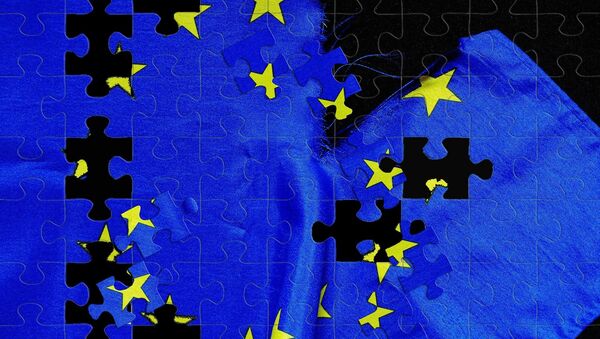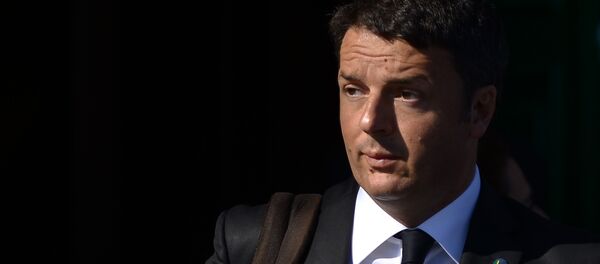Italy
Italy is at loggerheads with Brussels on ways of salvaging its banks, saddled with almost 360 billion euros of bad loans.
A recent survey revealed that 48 per cent of Italians would vote to leave the EU if given the same opportunity British voters had, with populists and Eurosceptics across the continent now eager to sink the “damaged ship” of the EU.
All these measures run foul of the EU practice of working with problem banks where bailout money is to be provided by creditors, not taxpayers.
In June, Italy requested a suspension of this rule, but Germany firmly said no.
Benoit Coeuré, member of the Executive Board of the European Central Bank, said that such a suspension would seal the end of the banking union “as we know it.”
Italian Prime Minister Matteo Renzi responded by saying that Italy did not “need any schoolteacher notations” and would make every effort to [protect the banks]. He even hinted that, if needed, his government could act unilaterally,” The Financial Times wrote citing a source in the Italian government.
Hungary
Hungary has scheduled a referendum for October 2 on the EU plan to introduce quotas for resettling migrants. In February, Hungarian Prime Minister Viktor Orban announced that his country would hold a referendum on the European Commission's mandatory quotas for the relocation of refugees, under which the country would be obliged to take in 2,300 refugees.
“We are holding this referendum in order to be heard by Brussels, which started discussing the quota system in April and May. The Hungarian government immediately signaled its opposition which put us on a collision track with the European Commission. That’s why Orban decided to hold a referendum He is certain that people will support him. Hungarians do not want to see foreigners ordered to come and settle down here,” Tamás Pál, director of Budapest University’s Social Policies Center, told Radio Sputnik.
He added that the Czech Republic, Slovakia and at some extent, Poland also rejected the principle of mandatory quotas.
Czech Republic
Czech President Milos Zeman supports the idea of a nationwide referendum on the country’s exit from the EU and NATO, but insist that the move requires parliamentary approval.
The Czech Republic is one of the four Visegrad Group (V4 group) states, along with Poland, Slovakia and Hungary, which opposes the implementation of the EU mandatory quota scheme to share thousands of refugees within the 28-nation bloc.
France
In France, a recent survey revealed that 61 percent of the respondents were reserved towards the EU. This fact should be considered as a protest against the European bureaucracy that ignores the interests of various European nations. This discontent has been deepened by the refugee crisis and the Turkey-EU deal on migrants.
A so-called "Frexit" has been actively discussed in France after the results of the British vote were revealed. Leader of the National Front party, Marine Le Pen was quick to propose a referendum on France’s membership in the EU.
Netherlands
Dutch Prime Minister Marc Rutte described the United Kingdom's decision to leave the EU as a signal of the need for change within the bloc.
“Brexit is a signal— and certainly not the only signal — that change is needed. Indeed, it can't be avoided. And I'm certainly not the first person to say so," Rutte said at a plenary session of the European Parliament in Strasbourg.
In June the United Kingdom held a referendum to determine whether or not the country should leave the European Union. According to the final results, 51.9 percent of voters, or 17.4 million people, decided to support Brexit, while about 16.1 million opposed it.



